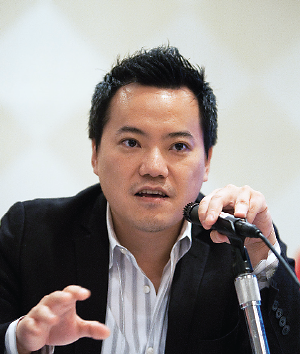Project Will Prepare ECP Members for Leadership
Abstract
APA Assembly members launch an early career psychiatrist (ECP) initiative they hope will inspire ECPs to not just remain APA members, but to become APA leaders.
There is talk about young people not joining organizations the way their predecessors did. Whether or not that is true, at APA there has been a decline in the number of early career psychiatrists (ECPs) joining and remaining members over the past few years.
Thus, a few months ago, APA Assembly Speaker Scott Benson, M.D., pondered how to use Assembly funds allocated for new initiatives to address this situation and encourage ECPs to remain APA members and even become leaders of the Association. He discussed the issue with members of the Assembly Executive Committee and then proposed a project to provide leadership training opportunities for some ECPs.
The project they envisioned would consist of “pairing some ECPs with rising leaders in district branches or APA Areas,” Benson explained to Psychiatric News. “By connecting these psychiatrists there would be opportunities to more effectively use the resources of the district branches to guarantee the project’s success.”

Steve Koh, M.D.: “We hope that these seven ECPs will become leaders of psychiatry not only in their local areas, but nationally.”
The Assembly Executive Committee endorsed the proposal and enlisted the help of Steve Koh, M.D., to begin the process of finding ECPs who would be appropriate for the project. Koh, who is on the clinical faculty of the Naval Hospital in San Diego, is the ECP representative to the APA Assembly Executive Committee. (He noted that he does his work for APA as an individual, not representing the Navy.)
The Assembly Committee of Early Career Psychiatrists is made up of ECP leaders from APA’s seven geographic-based Areas. Koh asked each of these leaders to find in their Area both an ECP and a general member who were involved in organized psychiatry at the local level, but not nationally. The general member was also to have indicated an interest in ECP issues and be, as Koh explained in a recent interview, “committed to making sure that organized psychiatry has a strong younger-generation component.”
Altogether 14 individuals—one ECP and one general member from each of the seven Areas—were recruited.
Then last September, these 14 psychiatrists were brought to Washington, D.C., for APA’s annual components meeting. During their day and a half together, they were given a crash course in what APA is all about. Some APA staff taught them how to talk to the media. Other staff reviewed legislative issues and what is happening on Capitol Hill. Still other speakers described the structure of APA and how the different pieces fit together to accomplish APA’s mission and goals.
The participants also met with several APA leaders. For example, “Jeffrey Borenstein, M.D., editor in chief of Psychiatric News and chair of the Council on Communications, was there to talk about Psychiatric News as well as his thoughts on electronic media and his vision for electronic communication for APA,” Koh said. “APA President Dilip Jeste, M.D., and APA President-elect Jeffrey Lieberman, M.D., stopped by to say hello. We had a trustee-at-large talk to the participants about state-level legislative issues.” The hope was that the seven ECPs would become infected with their senior colleagues’ passion and want to become APA leaders in their own right.
Finally the ECPs and their general-member partners were asked to come up with one or more projects to entice ECPs to remain members of APA after completing their residency, during which they paid lower APA dues, but to stay committed to the Association. One key initiative on which they are working, Koh said, is putting easy-to-access maintenance of certification (MOC) content on the APA Web site. Another is developing a membership recruitment tool.
“We are eager to see how these projects develop during the coming year,” Koh stated. “We hope that these seven ECPs will become leaders of psychiatry not only in their local areas, but nationally. They can then pass on what they have learned to other ECPs and convince them that involvement with APA is part of our professional responsibility.”
Members can contact Koh about the APA ECP initiative by e-mail at [email protected]. ■



